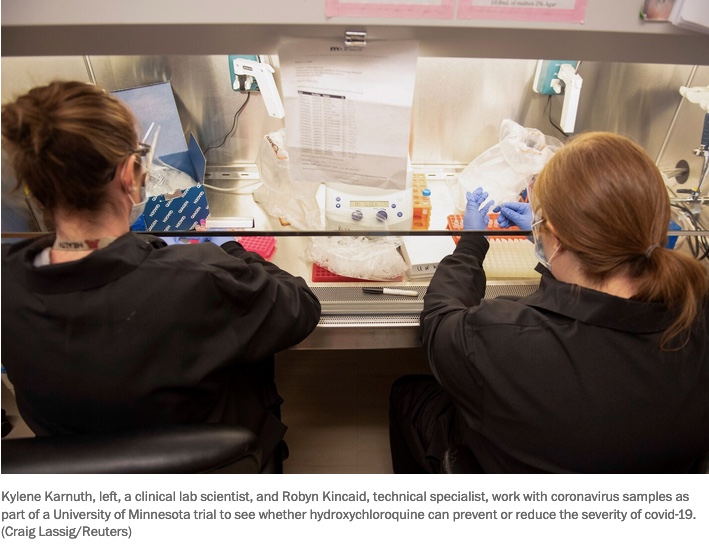In the months since the novel coronavirus emerged, doctors and drug companies have launched more than 100 human experiments in the United States to try experimental drugs, a decades-old malaria medicine and cutting-edge therapies for conditions such as HIV and rheumatoid arthritis.
Development of effective treatments to combat covid-19 would be one of the most significant milestones in returning the United States to normalcy. But a Washington Post review of the massive effort found a disorganized and scattershot approach that so far echoes the rest of America’s response to the virus. Researchers working around-the-clock describe a lack of a centralized national strategy, overlapping efforts, an array of small-scale trials that will not lead to definitive answers and no standards for how to prioritize efforts, what data to collect or how to share it to get to answers faster.
“It’s a cacophony; it’s not an orchestra. There’s no conductor,” said Derek Angus, chair of the department of critical care medicine at University of Pittsburgh School of Medicine, who is leading a covid-19 trial that will test multiple therapies. “My heart aches over the complete chaos in the response.”




